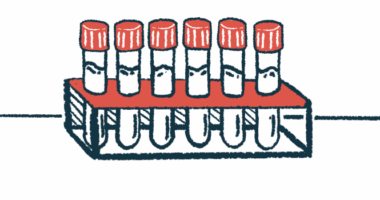Usnoflast well tolerated, shows signs of efficacy in ALS patients
Results showed trends toward slower disease progression with therapy

An experimental oral treatment from Zydus Lifesciences was well tolerated at all tested doses and showed signs of slowing disease progression in people with amyotrophic lateral sclerosis (ALS).
That’s according to findings from a proof-of-concept Phase 2a trial (NCT05981040) in India that tested Zydus’ usnoflast in 24 adults with ALS. The therapy achieved therapeutic levels in the spinal fluid in most participants.
The study, “A phase 2, proof-of-concept, placebo-controlled, randomized, multicenter, double-blind study to evaluate the efficacy, safety, tolerability, pharmacokinetics, and pharmacodynamics of Usnoflast (ZYIL1) in patients with amyotrophic lateral sclerosis,” was published in Amyotrophic Lateral Sclerosis and Frontotemporal Degeneration.
Usnoflast is designed to reduce inflammation that contributes to nerve cell damage and death in ALS by blocking the activity of the NLRP3 inflammasome, a group of proteins that detect danger signals and initiate immune responses to fight the invaders. NLRP3 is overactive in ALS, making it a promising target for treatment.
The therapy was recently granted fast track status in the U.S. for ALS. That designation is meant to accelerate the development of treatments for serious or life-threatening conditions.
Usnoflast was first tested in healthy volunteers at single and multiple ascending doses in two Phase 1 trials, where it was well tolerated and reduced blood levels of pro-inflammatory molecules associated with NLRP3 activation, indicating it worked as intended.
The Phase 2a trial was launched to determine the safety and efficacy of usnoflast in people with ALS. Its participants, who’d been living with ALS symptoms for up to nine months, were randomly assigned to one of three doses (25 mg, 50 mg, or 75 mg), or a placebo, twice daily for about three months. The patients had a mean age of 51, and most were women, but the researchers noted those given a placebo were about 15-21 years younger than those given usnoflast. During the trial, all the participants continued their standard ALS treatment with riluzole (sold as Tiglutik, among others) alone or with edaravone (sold as Radicava and Radicava ORS).
Testing efficacy of usnoflast
The main goal was to see if usnoflast could slow functional decline, as assessed with the ALS Functional Rating Scale-Revised (ALSFRS-R), after 12 weeks. While no significant differences were observed between any usnoflast dose and the placebo, there were trends toward a slower disease progression with the active treatment. For example, those given a placebo lost 2.26 points in their ALSFRS-R scores over 12 weeks, those given the 25 mg dose lost 1.91 points, and those assigned the 75 mg dose actually saw their scores increase by a mean of 0.52 points.
Similarly, the 50 mg and 75 mg doses tended to improve lung function, while the placebo group saw a decline in lung function over 12 weeks.
Results from pharmacological studies showed that most patients with available data (71%) had usnoflast levels in the spinal fluid that were considered therapeutically relevant. However, reductions in neurofilament light chain (NfL), a biomarker of nerve damage, were only seen in those given the higher dose, and even those weren’t significantly different from a placebo.
Researchers believe older age and faster disease progression of patients given usnoflast may have influenced the results.
Usnoflast was generally well tolerated, with the frequency and severity of treatment-emergent side effects being similar across all four study arms. The most common side effects were urinary tract infections and increases in liver enzymes. No serious adverse events or deaths occurred.
“Being a [proof-of-concept] study, this trial was designed with small sample size and small study duration,” the researchers wrote. “Although the primary and secondary outcomes of this study were not significant, observed [pharmacological] and safety results … support a larger and longer study to further evaluate the efficacy and safety of usnoflast.”
Zydus has been cleared to initiate a Phase 2b trial in the U.S. to test eight months of treatment with the 50 and 75 mg doses in about 210 adults with ALS. An open-label extension lasting four months may then follow the trial.






